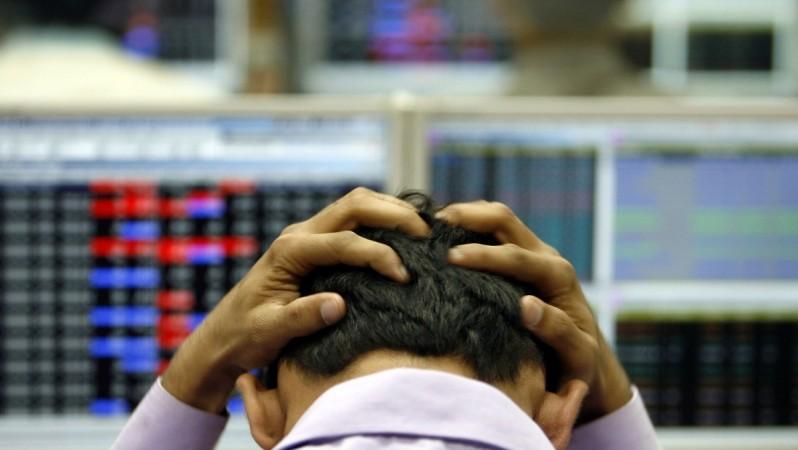
Indian stocks witnessed a free fall on Thursday in response to fears that the US Federal Reserve could hike interest rates in December, which could trigger flight of capital from emerging markets such as India. The BSE Sensex closed 440 points, or 1.56 percent lower, at 27,643 while the NSE Nifty ended the day at 8,573, down 135 points, or 1.56 percent.
Top Sensex losers were Adani Ports, HDFC, ICICI Bank and Reliance Industries while stocks that dragged the NSE Nifty down included Bank of Baroda, Adani Ports, Idea Cellular and Aurobindo Pharma.
Tata Consultancy Services (TCS), which is due to declare its September quarter results in a few hours, lost 2.14 percent to close at Rs. 2,329.25 while Infosys gained 2.19 percent to end the day at Rs. 1,052.05 per share. Infosys will be declaring its Q2 results on Friday.
Minutes of the Federal Open Market Committee (FOMC) meeting held on Sept. 20 and 21 revealed that a hike in interest rate has gained strength but still needed more enabling data to go for it.
"Members generally agreed that the case for an increase in the policy rate had strengthened," according to the minutes.
"But, with some slack likely remaining in the labor market and inflation continuing to run below the Committee's objective, a majority of members judged that the Committee should, for the time being, await further evidence of progress toward its objectives of maximum employment and 2 percent inflation before increasing the target range for the federal funds rate," it further said.
A rate hike would encourage foreign institutional investors (FIIs) to move funds out of emerging economies such as India. A major contribution of rally in Indian stock markets is attributed to FI buying, especially in Sensex and Nifty stocks.
The Sensex has gained 9.39 percent since April 1, 2016 (25,269) and FIIs have been net buyers of Indian equities since the beginning (April) of the current fiscal, including the first few days of trading this month.








![BJP fields Tashi Gyalson for Ladakh; drops sitting MP [details]](https://data1.ibtimes.co.in/en/full/797185/bjp-fields-tashi-gyalson-ladakh-drops-sitting-mp-details.jpg?w=220&h=138)







